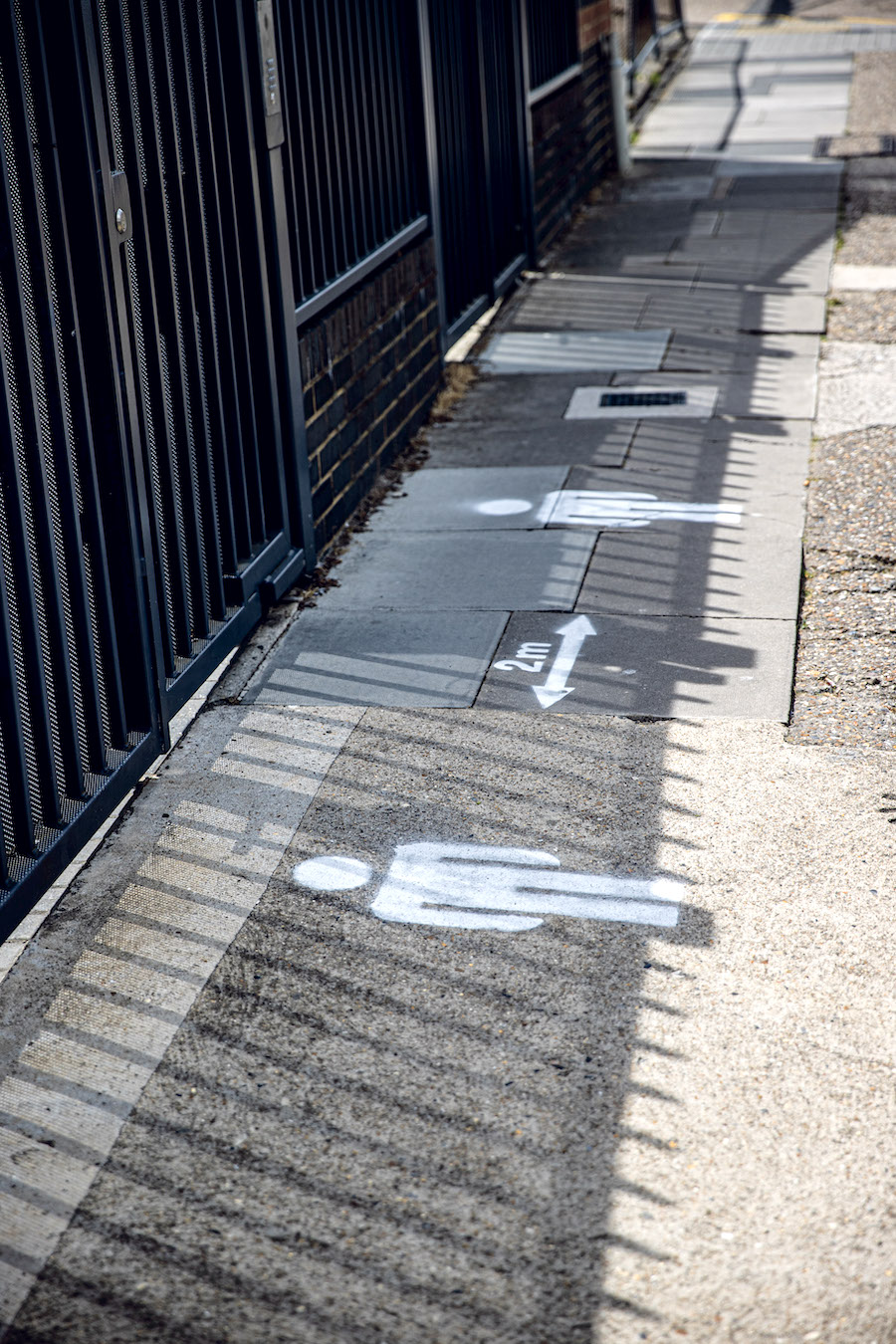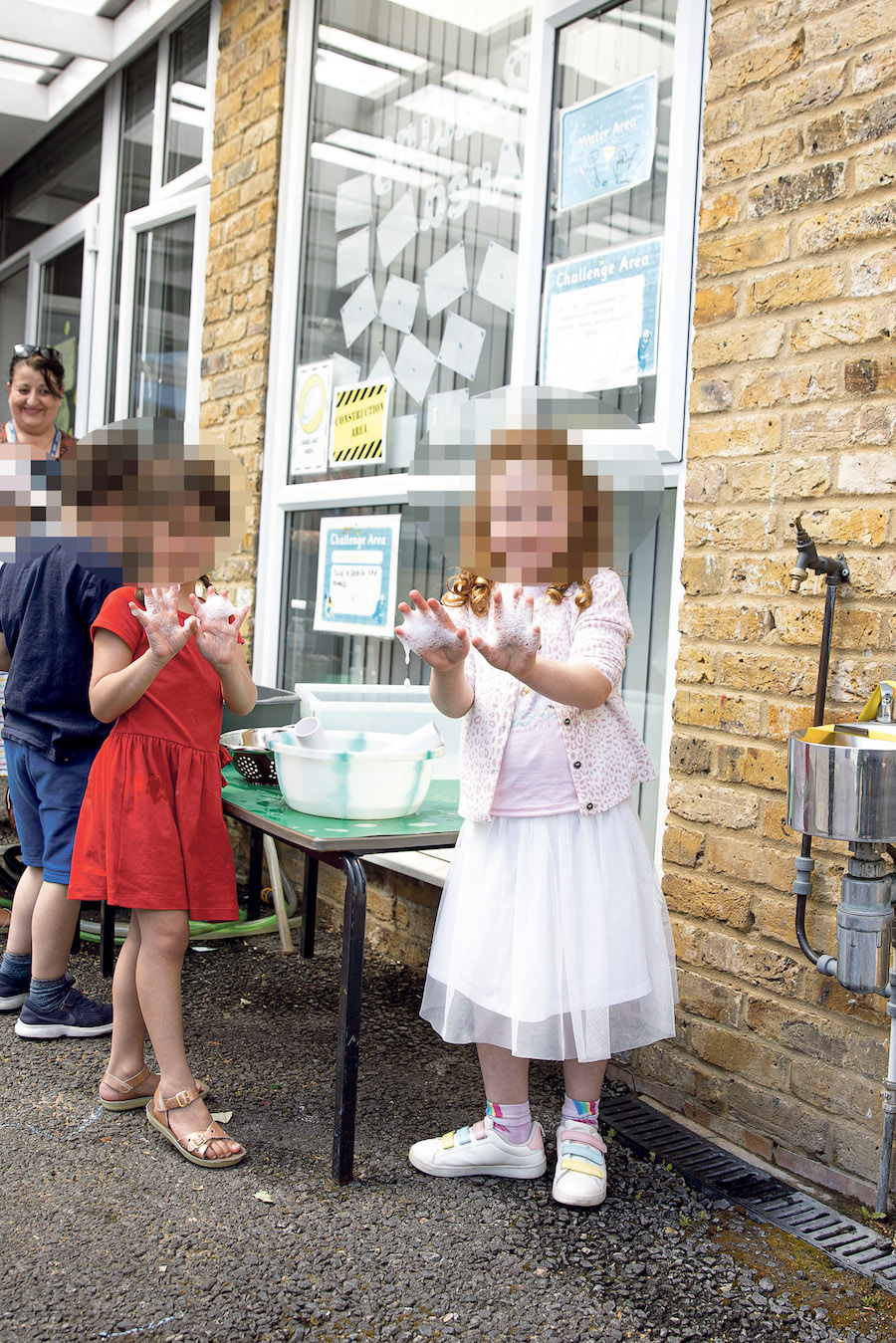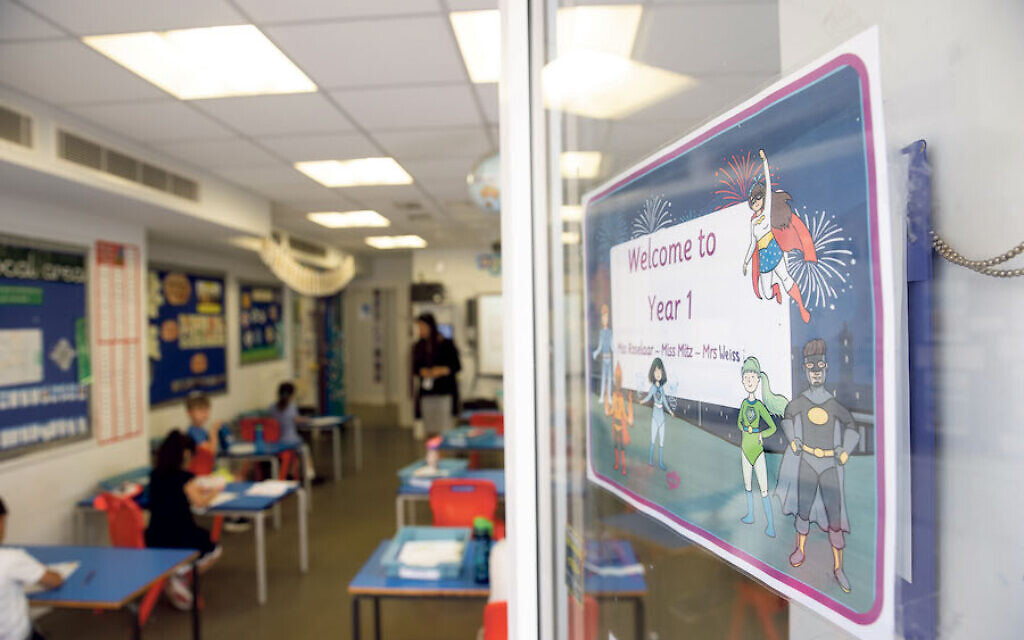The new abnormal in the classroom
As pupils return to school, new rules and guidelines will help keep Covid at bay
You could hear the collective sigh of relief from parents around the country when Boris Johnson announced that schools would reopen and children in all year groups could once again attend.
However, this week, with the initial weight of homeschooling off their shoulders, and the prospect of having their little ones out of the house and back in the safety of school five days a week, came the “hold on a minute” realisation. Just what are our kids going back to?
Parents of some children already experienced the new school arrangements, and the elusive “bubble” system before the summer holidays (me being one of them). Strange as it was, and as scary as it initially seemed, the rules and regulations quickly became the new norm.
Get The Jewish News Daily Edition by email and never miss our top stories Free Sign Up
Children with their parents waiting two metres apart from the next set, “virtual hugs” with friends, teachers calling pupils in one at a time, packed lunches on separate desks, and the constant hand washing seemed so daunting at first. But what was obvious was just how much the children longed to be back at school.
“Transitions in September can be tricky for all kids as they move up a class or start a new setting, but especially after a potential six months of not attending the building, most children (and parents!) are bound to feel nervous,” said chartered clinical psychologist Dr Laura Drage.
“Normalising this will be important when teachers speak to families. Families and schools should understand that it will take time for children to settle at school again and expectations should be managed, with children being given the space and time to slowly settle back into the demands of school.
“Children may be out of practice with their learning but also with their social skills, attention and concentration, behaviour and independent life skills. These may all need refreshing.”
For the confident and self-assured children, the new system was embraced – they were just happy to be back with friends and teachers, but what about those with issues such as anxiety, or separation or learning difficulties? If these pupils struggled before the Covid-19 pandemic, then the new systems could have a significant impact.
Sacks Morasha headteacher Hayley Gross informed us the school had introduced a new programme of 1:1 sessions for children who need support academically and emotionally for the return after lockdown. It has also utilised Norwood’s Heads Up Kids programme, which is specifically designed for September’s return to school. It will also take advantage of its well-being room and programmes for children who have additional needs, such as Anna Freud’s Talking Mental Health.

Children with specific or additional needs will be able to return to the normality of (albeit a new) routine when school resumes – something that can provide comfort and safety. Sinai Jewish Primary School sent all children with special educational needs or disabilities transition booklets to complete over the summer. The information added by the children will inform the school’s inclusion leader of any significant changes, such as anxiety, behaviour or sleeping difficulties.
Questions in the booklet cover topics such as emotions, anxieties and/or fears, which will be shared with the teachers. Sinai is also putting in place a PSHE [personal, social, health and economic education] programme for the first two weeks, which focuses specifically on children’s emotions and well-being.

This is a critical time in terms of maximising learning and education, to make up for the lost weeks that Covid forced upon us. Sinai has created an online form for all children to fill in ahead of the new academic year. The aim is for this to be reviewed by their new teacher and identifies the interests of the child but also any concerns they have ahead of the September return.
Kisharon, a school for pupils with complex learning disabilities, is also going the extra mile for its students. Headteacher Sora Kopfstein is excited to welcome back her students, with changes that support the government guidelines but, most importantly, fully support the pupils and parents. Students will be returning to a new school, the Kisharon Noé School, complete with new building. The school will not be using a catch-up curriculum but will check pupils’ baseline, so there is a starting point for setting targets and measuring progress.
Kopfstein said she anticipates many students will show signs of anxiety after not being in school for so long and also because of the additional changes of a new school building, classmates and staff, so they are fully prepared to provide extra support to both the pupils and their families. Any challenging behaviour linked to anxiety and the changes will be flagged so support can be tailored as needed.
With the plans in place, the school uniforms purchased and hand sanitiser at the ready, our trust in schools, educators and the education system has never been more important. With children up and down the country gearing up to be back among their friends and teachers, now is the time to embrace the positive – and essential – changes our schools are making, and trust that our kids will be going back to a loving, supportive and welcoming environment.
Bubbles beware; school is back from lockdown and, as for us parents, let’s raise a glass for getting through it.

Thank you for helping to make Jewish News the leading source of news and opinion for the UK Jewish community. Today we're asking for your invaluable help to continue putting our community first in everything we do.
For as little as £5 a month you can help sustain the vital work we do in celebrating and standing up for Jewish life in Britain.
Jewish News holds our community together and keeps us connected. Like a synagogue, it’s where people turn to feel part of something bigger. It also proudly shows the rest of Britain the vibrancy and rich culture of modern Jewish life.
You can make a quick and easy one-off or monthly contribution of £5, £10, £20 or any other sum you’re comfortable with.
100% of your donation will help us continue celebrating our community, in all its dynamic diversity...
Engaging
Being a community platform means so much more than producing a newspaper and website. One of our proudest roles is media partnering with our invaluable charities to amplify the outstanding work they do to help us all.
Celebrating
There’s no shortage of oys in the world but Jewish News takes every opportunity to celebrate the joys too, through projects like Night of Heroes, 40 Under 40 and other compelling countdowns that make the community kvell with pride.
Pioneering
In the first collaboration between media outlets from different faiths, Jewish News worked with British Muslim TV and Church Times to produce a list of young activists leading the way on interfaith understanding.
Campaigning
Royal Mail issued a stamp honouring Holocaust hero Sir Nicholas Winton after a Jewish News campaign attracted more than 100,000 backers. Jewish Newsalso produces special editions of the paper highlighting pressing issues including mental health and Holocaust remembrance.
Easy access
In an age when news is readily accessible, Jewish News provides high-quality content free online and offline, removing any financial barriers to connecting people.
Voice of our community to wider society
The Jewish News team regularly appears on TV, radio and on the pages of the national press to comment on stories about the Jewish community. Easy access to the paper on the streets of London also means Jewish News provides an invaluable window into the community for the country at large.
We hope you agree all this is worth preserving.
-
By Laurent Vaughan - Senior Associate (Bishop & Sewell Solicitors)
-
By Laurent Vaughan - Senior Associate (Bishop & Sewell Solicitors)
-
By Laurent Vaughan - Senior Associate (Bishop & Sewell Solicitors)
-
By Laurent Vaughan - Senior Associate (Bishop & Sewell Solicitors)






















